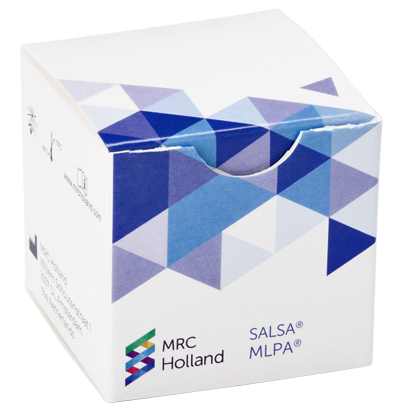Mutations in the MUTYH gene result in a hereditary predisposition to colon and gastric cancer, which is referred to as MAP. MAP is an autosomal recessive disorder. In MAP patients, ten to several hundred colonic adenomatous polyps develop, and these become evident at a mean age of 50 years. However, colon cancer can also develop in the absence of polyposis. A single defective copy of the MUTYH gene may result in no, or only a small increase in risk for colorectal cancer (CRC). There are two common MUTYH mutations, c.536A>G (p.Tyr179Cys) and c.1187G>A (p.Gly396Asp) that are carried by ~1%-2% of the general population and account for ≥90% of all MUTYH pathogenic variants in northern European populations. Up to 70% of MAP patients harbor at least one of these variants (Aretz et al. 2013). Copy number variations of MUTYH are very rare; they account for <1% of pathogenic alleles. The most frequent CNV in MUTYH - a deletion of exon 4-16 - is reported in multiple patients (Castillejo et al. 2014). More information on MAP is available at http://www.ncbi.nlm.nih.gov/books/NBK107219/.
A recurrent duplication of ~40 kb directly upstream of the GREM1 gene is known to lead to HMPS1. Patients with HMPS1 have a predisposition for developing CRC (Jaeger et al. 2012). Presence of this duplication is predicted to cause reduced bone morphogenetic protein (BMP) pathway activity, a mechanism that underlies tumorigenesis in juvenile polyposis of the large bowel. Several additional duplications in the GREM1 upstream region have been found: e.g. a duplication of the upstream region and the whole GREM1 gene of ~57 kb has been described in one patient with sigmoid colon carcinoma (Venkatachalam et al. 2011); a duplication of ~16 kb has been described in members of a family presenting with atypical FAP (Rohlin et al. 2016); and a duplication of ~24 kb in a patient with multiple colon polyps has been reported (McKenna et al. 2019). These different duplications can be detected by multiple probes in this P378-D1 probemix as is indicated in the table below. More information on HMPS1 is available at http://omim.org/entry/601228.
| SALSA MLPA probe |
Probes expected to be affected in P378-D1 probemix (+), for each published duplication |
| length (nt) |
Probe number |
Gene & exon |
40 kb (Jaeger et al. 2012) |
57 kb (Venkatachalam et al. 2011) |
16 kb (Rohlin et al. 2016) |
24 kb (McKenna et al. 2019) |
| 250 |
18353-L23307 |
SCG5 exon 2 |
|
|
|
|
| 202 |
18310-L14109 |
SCG5 exon 3 |
+ |
|
|
|
| 220 |
18352-L23306 |
SCG5 exon 4 |
+ |
+ |
|
|
| 391 |
21357-L29761 |
SCG5 exon 5 |
+ |
+ |
|
|
| 157 |
18309-L30392 |
SCG5 exon 6 |
+ |
+ |
+ |
+ |
| 226 |
21353-L29757 |
SCG5 downstream |
+ |
+ |
+ |
+ |
| 345 |
18356-L23310 |
GREM1 upstream |
+ |
+ |
+ |
+ |
| 310 |
18354-L23308 |
GREM1 upstream |
+ |
+ |
|
+ |
| 136 |
18483-L23305 |
GREM1 exon 1 |
|
+ |
|
+ |
| 161 |
18350-L23692 |
GREM1 exon 1 |
|
+ |
|
+ |
| 363 |
18358-L23312 |
GREM1 exon 2 |
|
+ |
|
|
| 382 |
18360-L23314 |
GREM1 exon 2 |
|
+ |
|
|






